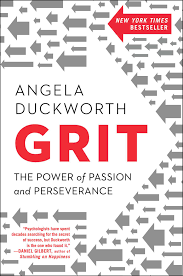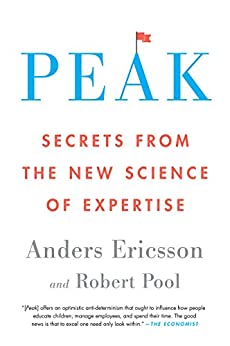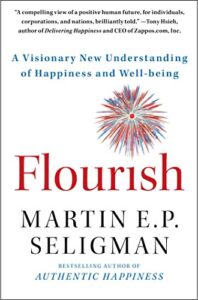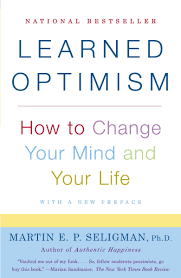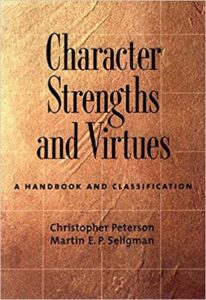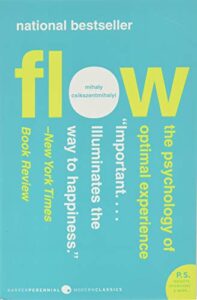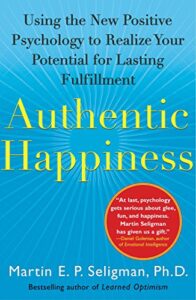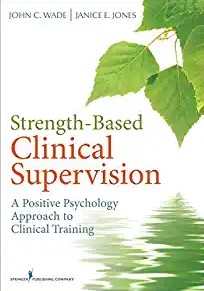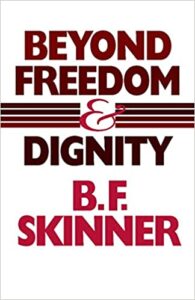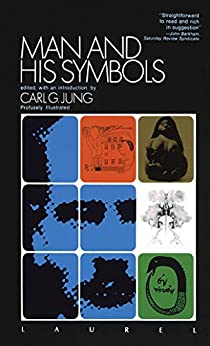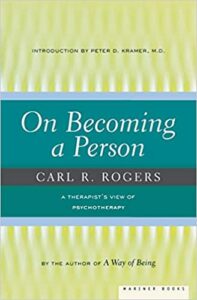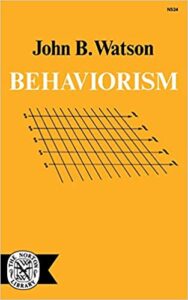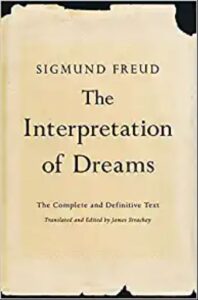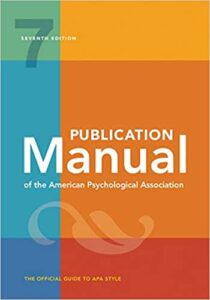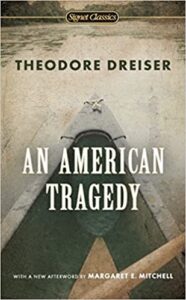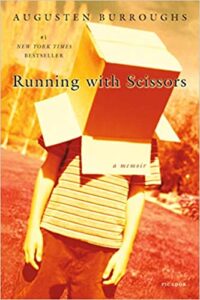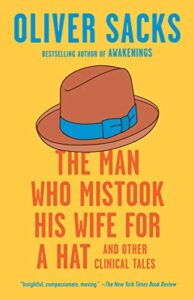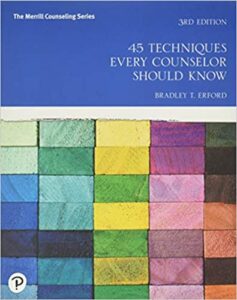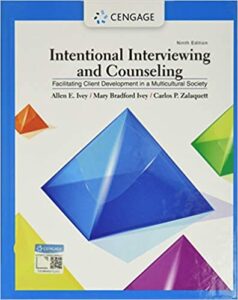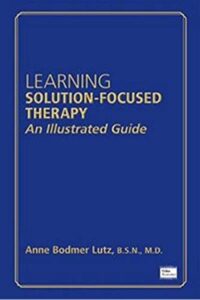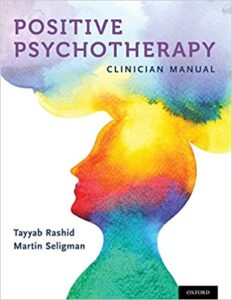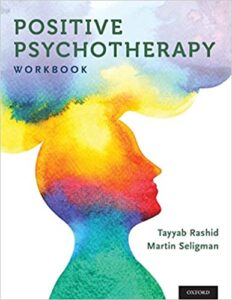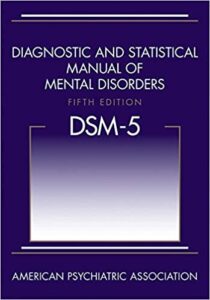We've picked out our favorite books for those interested in learning more about psychology. Includes our favorite positive psychology books and psychology classics from Freud, Skinner, Watson, and Rogers. We've also added popular academic and clinical texts used in counseling and psychology training programs. AllPsych receives a small percentage from Amazon, usually 2-4% of the book price, if you purchase the book though our link. This helps keep our website free to everyone. Your price doesn't change.
Grit - The Power of Passion and Perseverance - Duckworth (2016)
From the back cover: In this must-read book for anyone striving to succeed, pioneering psychologist Angela Duckworth shows parents, students, educators, athletes, and businesspeople - both seasoned and new - that the secret to outstanding achievement is not talent but a special blend of passion and perseverance she calls "grit."
Recommended for everyone interested in learning more about grit.
Peak: Secrets from the New Science of Expertise - Ericsson a& Pool (2016)
Anders Ericsson has made a career studying chess champions, violin virtuosos, star athletes, and memory mavens. Peak distills three decades of myth-shattering research into a powerful learning strategy that is fundamentally different from the way people traditionally think about acquiring new abilities. Whether you want to stand out at work, improve your athletic or musical performance, or help your child achieve academic goals, Ericsson’s revolutionary methods will show you how to improve at almost any skill that matters to you.
Recommended for everyone interested in Performance Psychology and self-improvement.
Flourish - A Visionary New Understanding of Happiness and Well-being - Seligman (2011)
From the back cover: While certainly a part of well-being, happiness alone doesn’t give life meaning. Seligman now asks, What is it that enables you to cultivate your talents, to build deep, lasting relationships with others, to feel pleasure, and to contribute meaningfully to the world? In a word, what is it that allows you to flourish? “Well-being” takes the stage front and center, and Happiness (or Positive Emotion) becomes one of the five pillars of Positive Psychology, along with Engagement, Relationships, Meaning, and Accomplishment—or PERMA, the permanent building blocks for a life of profound fulfillment.
Recommended for everyone interested in learning about the Positive Psychology Model of Well-being and its five pillars.
Learned Optimism: How to Change Your Mind and Your Life - Seligman (2006)
From the back cover: Known as the father of the new science of Positive Psychology, Martin E. P. Seligman draws on more than twenty years of clinical research to demonstrate how optimism enhances the quality of life, and how anyone can learn to practice it.
Recommended for everyone.
Character Strengths and Virtues: A Handbook and Classification - Peterson & Seligman (2004)
Character Strengths and Virtues classifies twenty-four specific strengths under six broad virtues that consistently emerge across history and culture: wisdom, courage, humanity, justice, temperance, and transcendence. Each strength is thoroughly examined in its own chapter, with special attention to its meaning, explanation, measurement, causes, correlates, consequences, and development across the life span, as well as to strategies for its deliberate cultivation. This book demands the attention of anyone interested in psychology and what it can teach about the good life.
Recommended for everyone interested in learning more about character strengths, virtues, and how to amplify them in pursuit of greater well-being.
Flow: The Psychology of Optimal Experience - Csikszentmihalyi (2008 Edition, Originally Published 1990)
Legendary psychologist Mihaly Csikszentmihalyi's famous investigations of "optimal experience" have revealed that what makes an experience genuinely satisfying is a state of consciousness called flow. During flow, people typically experience deep enjoyment, creativity, and a total involvement with life. In this new edition of his groundbreaking classic work, Csikszentmihalyi ("the leading researcher into ‘flow states’" —Newsweek) demonstrates the ways this positive state can be controlled, not just left to chance.
Authentic Happiness - Seligman (2004)
According to esteemed psychologist and bestselling author Martin Seligman, happiness is not the result of good genes or luck. Real, lasting happiness comes from focusing on one’s personal strengths rather than weaknesses—and working with them to improve all aspects of one’s life. Using practical exercises, brief tests, and a dynamic website program, Seligman shows readers how to identify their highest virtues and use them in ways they haven’t yet considered.
Recommended for everyone interested in learning more Dr. Seligman's approach to happiness.
Strength-Based Clinical Supervision: A Positive Psychology Approach to Clinical Training - Wade & Jones (2015)
Strengths-Based Clinical Supervision combines the principles of positive psychology with research on effective supervision and training from various disciplines along with the characteristics of effective clinical supervisors. The text is designed for use with masters and doctoral level trainees and is formatted to accommodate a 16-week semester framework. It emphasizes practical applications and provides examples of questions and prompts to be used in supervision sessions. Each chapter features case studies and discussion questions to encourage retention of the material.
Recommended for everyone clinical psychology students learning to be supervisors.
Beyond Freedom and Dignity - Skinner (1971)
In this profound and profoundly controversial work, a landmark of 20th-century thought originally published in 1971, B. F. Skinner makes his definitive statement about humankind and society...[This text] urges us to reexamine the ideals we have taken for granted and to consider the possibility of a radically behaviorist approach to human problems--one that has appeared to some incompatible with those ideals, but which envisions the building of a world in which humankind can attain its greatest possible achievements.
Recommended for anyone wanting to learn more about how B.F. Skinner, the psychologist who gave us reinforcement and punishment, saw behaviorism's role in the world.
Man and His Symbols - Jung (1964)
Jung examines the full world of the unconscious, whose language he believed to be the symbols constantly revealed in dreams. Convinced that dreams offer practical advice, sent from the unconscious to the conscious self, Jung felt that self-understanding would lead to a full and productive life. Thus, the reader will gain new insights into himself from this thoughtful volume, which also illustrates symbols throughout history.
Recommended for anyone interested in Jung's theory of the Collective Unconscious and how he split from his friend, Sigmund Freud, in the development of his own theory of personality.
On Becoming A Person - Rogers (1995, originally published 1961)
The late Carl Rogers, founder of the humanistic psychology movement, revolutionized psychotherapy with his concept of "client-centered therapy." His influence has spanned decades, but that influence has become so much a part of mainstream psychology that the ingenious nature of his work has almost been forgotten. A new introduction by Peter Kramer sheds light on the significance of Dr. Rogers's work today.
Recommended for anyone interested in how to create authentic relationships from the master - Dr. Carl Rogers.
Behaviorism - Watson (First Published 1924)
Controversial at the time and now so widely accepted thanks to much supported research, the publication of this book marked the beginning of the Behavioral Revolution. With emphasis on observable behaviors rather than thoughts and emotions, Watson discusses the premise behind the theory and sets the groundwork for future psychologists, like Skinner, to show the world the power of behavioral change. This is a must for any behaviorist and for anyone wishing to argue against this important school of thought in professional psychology.
Recommended for everyone interested in learning how behaviorism got its start.
The Interpretation of Dreams - Freud (2010, Originally Published 1899)
This is the text that started the therapy revolution. Freud introduces the unconscious and the structure of the id, ego, and superego. The immense following of his work has perhaps only been overshadowed by the uprising against his perverse ideas regarding sex and aggression. Both sides have advanced the knowledge of psychology and human nature...and it all began with Sigmund Freud, the father of modern psychology.
Recommended for everyone interested in how it all started.
Publication Manual of the American Psychological Association, 7th Edition
- American Psychological Association (2020)
The new 2020 copyright release of the Publication Manual of the American Psychological Association, Seventh Edition includes three different formats — spiral and tabbed, paperback, and hardcover, all of which are full-color. It is the official source for APA Style. With millions of copies sold worldwide in multiple languages.
Recommended for writers, researchers, editors, students, and educators in the social and behavioral sciences, natural sciences, nursing, communications, education, business, engineering, and other fields.
An American Tragedy - Dreiser (2010)
The epic story of an innocent boy named Clyde, raised by a Kansas Preacher, who ventures off to experience life. The author creates the illusion that Clyde could be anyone, including the reader, and captures the emotions, twists and turns, and tragedies of his adventure to find out what life is about. A true masterpiece and ingenious character study.
Recommended for anyone looking for a good character study.
Running with Scissors - Burroughs (2003)
This quirky book reads like a series of short stories but details the life of the author as he recalls strange and wonderful aspects of growing up. The scenes are bizarre at times, impossible to believe at others, and even touching and humorous. When life gets this bad, the only thing left to do is laugh...and laugh you will. This is light reading for those who don't mind a little strangeness. It is definitely chock full of interesting (and diagnosable) characters. Depression, anxiety, psychosis, OCD, sexual perversions, bipolar, and more... it's all in there. (This book contains sexual themes that may be offensive to some people and mental health issues and trauma that may be triggering).
Recommended for anyone interested in character studies and wants some light reading on a very serious topic.
The Man Who Mistook His Wife for a Hat and Other Clinical Tails- Sacks (2021, Originally Published 1985)
This book tells the stories of individuals afflicted with perceptual and intellectual disorders: patients who have lost their memories and with them the greater part of their pasts; who are no longer able to recognize people and common objects; whose limbs seem alien to them; who lack some skills yet are gifted with uncanny artistic or mathematic talents. In Dr. Sacks's splendid and sympathetic telling, his patients are deeply human, and his tales are studies of struggles against incredible adversity. A great healer, Sacks never loses sight of medicine's ultimate responsibility: "the suffering, afflicted, fighting human subject."
45 Techniques Every Counselor Should Know, 3rd Edition - Erford (2019)
Designed to prepare students to enter their field with sound ideas for applying theory-based techniques to their counseling. Coverage of each technique starts with the presentation of the theoretical origins, then provides a step-by-step guide to implementation, and culminates with opportunities for application. Transcriptions, case examples, multicultural implications, and outcomes-based research demonstrate real-life application of how the techniques can be used in counseling practice. This indispensable resource provides hands-on help for working with clients from all backgrounds to create positive changes in their lives and meet their counseling goals.
Recommended for students and professional counselors and therapists who want the latest techniques from a wide variety of theoretical approaches.
Intentional Interviewing and Counseling, 9th Edition - Ivey, Ivey, & Zalaquett (2018)
This textbook gives you the tools to adapt your skills to address both individual and multicultural uniqueness, conduct interviews using five different theoretical approaches, and begin developing a personalized style and theory of interviewing and counseling that matches your own aptitudes and affinities. Moreover, this is the only text in the field that will show you how to understand and use neuroscience in counseling practice. Case studies, sample interviews, and a "Portfolio of Competencies" are just a few of the many tools that will help you master the material and become a better listener.
Recommended for counseling and therapy students and practicing professionals who want to brush up on their interviewing skills.
Learning Solution-Focused Therapy: An Illustrated Guide - Lutz (2014)
From the back cover: Solution-focused therapy is an evidence-based practice that focuses on creating conversations that build solutions, rather than solve problems. [This text] teaches readers how to practice and become competent in conducting solution-focused therapy - an area of growing interest as the emphasis on brief therapy increases.
Recommended for Psychologists, Therapists, Counselors, Social Workers, Consultants, Educators, and Clinical Supervisors.
Positive Psychotherapy: Clinician Manual - Rashid & Seligman (2018)
Positive Psychotherapy provides therapists with a session-by-session therapeutic approach based on the principles of positive psychology, a burgeoning area of study examining the conditions and processes that enable individuals, communities, and institutions to flourish
Recommended for Psychologists, Therapists, Counselors, Social Workers, Consultants, Educators, and Clinical Supervisors who are interested in integrating positive psychology into their professional practice.
Positive Psychotherapy: Workbook - Rashid & Seligman (2014)
Positive Psychotherapy: Workbook guides readers through a session-by-session therapeutic approach based on the principles of positive psychology, an exciting new area of study examining the factors that enable us to flourish. This workbook, designed to be used in conjunction with the accompanying clinician's manual, first explains what exactly positive psychotherapy is, exploring the important concepts of character strengths.
Recommended for Psychologists, Therapists, Counselors, Social Workers, Consultants, Educators, and Clinical Supervisors who are interested in integrating positive psychology into their professional practice and their clients.
Diagnostic and Statistical Manual of Mental Disorders, 5th Edition (DSM-5)
- American Psychiatric Association (2013)
The newest version of the diagnostic reference manual for clinical and counseling professionals in psychology and related fields. Includes updated information on diagnoses, etiology, and research on mental illness.
Recommended for professionals who diagnose mental illness, others interested in the process and symptoms of mental illness. Written for professionals with a mental health background.
